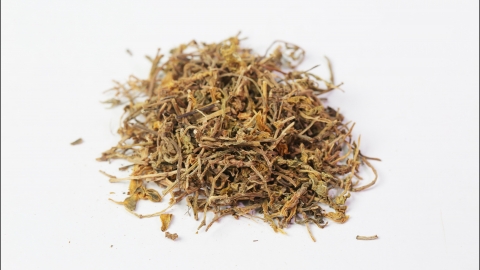Can Sedum sarmentosum lower transaminase levels?
Generally, if elevated transaminase levels are caused by the accumulation of damp-heat, the herb Sedum sarmentosum (垂盆草) may be used under medical guidance to assist in lowering these levels. However, when elevated transaminase levels result from other complex causes, this herb alone is unlikely to be effective. If abnormalities occur, timely medical consultation is recommended. Detailed analysis is as follows:

When elevated transaminase levels are due to internal accumulation of damp-heat, symptoms such as jaundice of the skin and eyes, bitter taste in the mouth, and yellow greasy tongue coating may appear. Sedum sarmentosum is cold in nature and has functions of clearing heat, detoxifying, promoting diuresis, and relieving jaundice. When used properly under a doctor's guidance in combination with other liver-protecting medications, it may help regulate liver metabolism, assist in lowering transaminase levels, and improve liver inflammation. This process must be accompanied by adjustments to lifestyle and strict adherence to medical advice regarding medication.
If elevated transaminase levels are caused by complex factors such as viral hepatitis, drug-induced liver injury, or autoimmune liver disease, Sedum sarmentosum cannot effectively target key treatment aspects such as viral suppression or immune regulation. In these cases, using only Sedum sarmentosum cannot address the underlying liver pathology. Comprehensive treatment strategies including antiviral therapy, discontinuation of hepatotoxic drugs, and immune modulation are required. Relying solely on Sedum sarmentosum may delay appropriate treatment.
When transaminase levels are elevated, one should not self-medicate with Sedum sarmentosum without medical consultation. Prompt medical evaluation is necessary to determine the underlying cause, and a treatment plan should be formulated by a qualified physician based on the individual condition. Liver function should be regularly monitored during treatment to ensure safety and efficacy.








